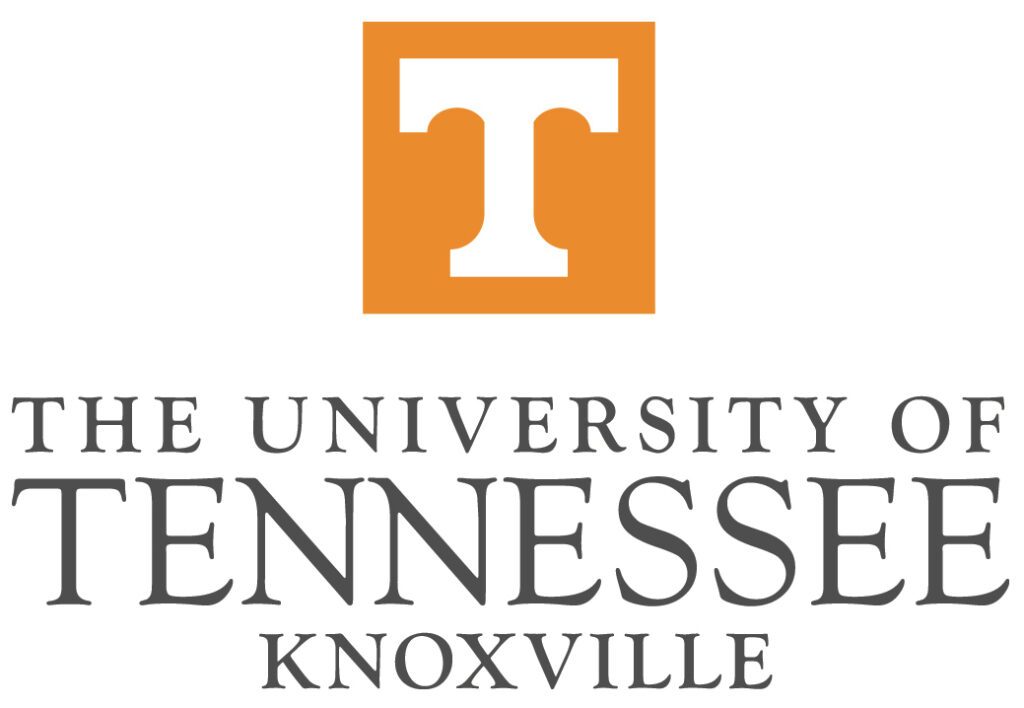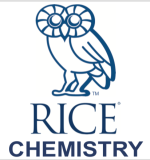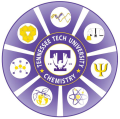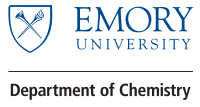Graduate School Fair
San Juan, Puerto Rico
Puerto Rico Convention Center
October 19-22, 2022
SERMACS 2022
Graduate School Fair
Puerto Rico Convention Center – Ballroom B
Presiding: Milagros Delgado, Ph.D.
Puerto Rico Convention Center – Ballroom B
Thursday, October 20th, 9:00 am – 5:00 pm
Friday, October 21st, 2022. 2:30 – 5:00 pm
We are pleased to invite you to visit the Graduate Program offerings at the SERMACS 2022 Graduate School Fair.
Join the many universities and students that will be participating in this event. We have many undergraduate student opportunities at SERMACS 2022 and the Graduate School Fair is one of the highlights of the meeting.
Meet the Graduate School representatives in person and explore your possible future at these prestigious instructions. For the specific table booth locations check the floor plan on the right.
Exhibitors: Lead Capture Service for SERMACS is provided by Cvent. Click here for more information.

Participating Institutions
Click the Institution’s logo for more information and the assigned table number.
Lorem ipsum dolor sit amet, consectetur adipiscing elit. Ut elit tellus, luctus nec ullamcorper mattis, pulvinar dapibus leo.
Graduate Program Descriptions (with table numbers)
1. University of Tennessee
The Department of Chemistry at the University of Tennessee, Knoxville offers a long-standing tradition of excellence in chemical research and education, stretching from 1947 when the department granted the university’s first PhD. We offer PhD and MS degrees in analytical, inorganic, organic, physical, and polymer chemistry. PhD students may also specialize in theoretical chemistry or may pursue a degree in chemical physics in cooperation with the Department of Physics. Our faculty members have research interests including traditional areas of chemistry as well as new interdisciplinary fields such as materials chemistry, chemistry of the life sciences, data sciences and environmental chemistry, and faculty and students engages in a number of collaborative relationships with many departments across campus. Additionally, faculty members in a variety of divisions have close ties with nearby Oak Ridge National Laboratory (ORNL), providing unique access and opportunities for our graduate students.
Webpage link: https://www.uab.edu/cas/chemistry
2. Florida State University
The Florida State University Department of Chemistry & Biochemistry is home to ~30 national and international award winning research active faculty. Our departments research spans all traditional chemistry disciplines but fosters a highly collaborative, cross-disciplinary environment with emphasis in the Chemistry of Health, Advanced Measurements & Analysis, and Chemistry of Energy & Materials. This combined with close ties with the National High Magnetic Field Laboratory, High Performance Computing Cluster, Institute of Molecular Biophysics, and more provides a scientifical rich and diverse environment to teach, learn, and pursue cutting-edge science. In addition to the 5.2-year average time to Ph.D., our graduate students benefit from full access to our X-ray, spectroscopy, NMR, and mass-spec user facilities. We pride ourselves in producing high quality graduates that are the next generation of researchers, innovators, and leaders in the scientific community.
Website: https://www.chem.fsu.edu/
3. North Carolina State University
Graduate students in the Department of Chemistry at NC State perform cutting-edge interdisciplinary research. Working with our 45 distinguished and award-winning faculty, graduate students develop the skills needed to excel in positions throughout the world. Our vibrant research groups work in basic science, technology development, and interdisciplinary chemistry. More than 130 years after its creation, NC State continues to make its founding purpose a reality. Every day, our career-ready graduates and world-class faculty make the fruits of learning and discovery available to people across the state, the nation and the world.
The Chemistry graduate program has approximately 170 graduate students across four divisions of study with most students requiring five years to complete a Ph.D. degree. First year graduate students typically teach undergraduate laboratory and recitation courses, enroll in classes specific to their interests, and choose a research mentor. Research usually begins during the spring of the first year.
Website: https://chemistry.sciences.ncsu.edu/
4. Georgia Southern University
Environmental Science Ph.D.
About the Program: Heightened public interest in the hazards facing the environment, as well as increasing demands placed on the environment by population growth, are spurring the need for environmental scientists. The PhD with a major in Environmental Science is the only degree of its kind in the state of Georgia and qualifies graduates to meet the growing statewide and national demand for professionals trained in an interdisciplinary science, technology, education, and mathematics field that focuses on environmental science and sustainability. Opportunities exist across all science and mathematics disciplines for study and for research in a wide range of natural laboratories that include forests, beaches, salt marshes, rivers and more along southeast Georgia’s coastal plain as well as abroad. Graduates are equipped with writing, math, presentation, technical, and essential skills that are critical for success in today’s economy and are well-prepared for jobs in industry, government, non-profit, and/or educational sectors. Data from the Bureau of Labor Statistics projects that environmental science-related fields will fill more than 9,400 jobs each year until 2030.
General Program Requirements: The PhD with a major in Environmental Science is housed within the James. H. Oliver, Jr., Institute for Coastal Plain Science (ICPS). The ICPS is an interdisciplinary unit that promotes, in coordination with public and private partnerships, interdisciplinary research and education directed toward understanding the physical and biological resources occurring below the Fall Line and their sustainable use and management. The PhD requires 78 hours of course work with the program of study developed jointly between the graduate student and graduate committee. Major advisors and committee members can come from any department within the College of Science and Mathematics as long as the faculty members are affiliates within the ICPS. In addition to completing the required course work, each candidate for the PhD in Environmental Science must complete a dissertation on a subject approved by the student’s doctoral committee.
External Link: https://cosm.georgiasouthern.edu/icps/environmental-science-ph-d/
Master of Science in Chemistry – Applied Physical Science Degree
Overview: Prepare to become a leader in the business aspects of science. Georgia Southern’s Master of Science in Applied Physical Science (MS-APS) is a terminal professional degree that prepares you for the workplace. Gain real-world experience in applying physical science to the business, government, and nonprofit sectors. This master of applied science program deepens your understanding of the science used in your field, giving you a solid grounding in business fundamentals and communications. You can choose between a terminal non-thesis or a terminal thesis option, and select an interdisciplinary concentration area in: Environmental science; Material science; Pharmaceutical science
External Link: https://cosm.georgiasouthern.edu/degrees-programs/graduate/msaps/
5. Baylor University
Baylor University has R1 status and is located in Waco, Texas. The Chemistry and Biochemistry (CBC) department has over 20 research active faculty members and continues to grow each year. The program offers the Ph. D. degree in Organic, Biochemistry, Inorganic, Analytical, and Physical Chemistry. CBC is the largest graduate program at Baylor University with over 100 graduate students enrolled. Students receive a competitive stipend, free tuition, and subsidized health insurance. Students conduct research using state-of-the art equipment located in faculty laboratories and in various multi-user facilities within the Baylor Science Building. These are the Molecular Bioscience Center, the Mass Spectrometry Center, the Center for Microscopy and Imaging, the Center for NMR spectroscopy, and the X-ray diffraction facility. More information of our program can be found at: https://www.baylor.edu/chemistry/index.php?id=948293
6. University of Alabama, Department of Chemical and Biological Engineering
Chemical engineering provides students with real-world experience through laboratory classes, hands-on operation of pilot scale equipment, and research projects that result in clean energy production and medical applications. UA’s chemical and biological engineering curriculum is designed to shape students into the kinds of people who understand as much as possible about their world and their roles in it, and who want to make a difference in the world today. Students graduating from this program pursue various careers, including petroleum engineers, pharmaceutical manufacturing, patent lawyers, process engineers, medical doctors, and dentists.
Link: https://che.eng.ua.edu/
7. West Virginia University
Located in the picturesque rolling hills of northern West Virginia, the West Virginia University C. Eugene Bennett Department of Chemistry is home to 27 research and teaching faculty and 90 graduate students who collectively engage in cutting edge research, difference making education, and community engagement activities. All graduate students receive guaranteed assistantships, including competitive stipends, full University tuition waivers and health insurance, for the entirety of their doctoral training. Structured mentoring from energetic and enthusiastic faculty allows graduate students to pursue the research and scholarship that best suits their career aspirations. Students enjoy living in the family-oriented Morgantown community that is rated a top-ten college town in the United States and offers the best of city atmosphere together with a near endless variety of outdoor recreational opportunities. Please contact Prof. Brian Popp, Director of Graduate Studies (Chemistry.DGS@mail.wvu.edu) for more information about the program and details about the application. Priority review for Fall 2023 admission begins January 1st, 2023.
Website: https://www.chemistry.wvu.edu/students/graduate-students/phd-in-chemistry
8. University of Pennsylvania
The Chemistry Department at the University of Pennsylvania is located in Philadelphia, Pennsylvania. Within the department, the traditional sub-fields of biochemistry, organic, inorganic, and physical chemistry serve as a framework from which collaborative, inter-disciplinary experimental and theoretical research is launched. Penn Chemistry offers a summer research program for undergraduates, a professional Master’s Degree program, and a fully funded PhD program.
Penn Chemistry prides itself on its educational mission. A breadth of undergraduate and graduate courses involving the chemical sciences are available in the department, which also administers the University’s chemistry and biochemistry majors as well as the Vagelos Scholars Program in the Molecular Life Sciences and the Vagelos Program in Energy Research. Students and researchers develop skills in laboratory practice, the analysis of findings, and in building models and understanding, while performing research in the leading frontiers of molecular science.
Website: https://www.chem.upenn.edu/
9. University of Mississippi (Ole Miss)
The Ph.D. program in Chemistry at the University of Mississippi offers research opportunities in astrochemistry, drug delivery, bioinorganics, energy & fuels, environmental chemistry, catalysis, nanomaterials, spectroscopy, theory & computation, and biomedical materials among other applications across the traditional fives areas of chemistry. Additionally, we anticipate opening chemistry education as an additional research area for Fall 2023. Our department is a large family with roughly 50 graduate students and 17 tenured and tenure-track faculty. All admitted students are guaranteed full funding for five years provided that they are making good progress. Oxford, MS is a hotbed of culture and sports in a small town of 25,000 making it a true gem of a place to live. SEC athletics along with world-class arts & music complement this place recently listed by Southern Living magazine as the best food town in the south. Chemistry and culture combine at the University of Mississippi.
10. Virginia Polytechnic University (Virginia Tech)
The Virginia Tech Department of Chemistry is a highly ranked University Exemplary Department housed in three world-class teaching, research, and instrumentation buildings. Research in the Department is innovative, collaborative, and interdisciplinary. Nearly all our research activities extend beyond conventional boundaries, embracing engineering, biology, medicine, and agriculture. The strength of these initiatives has been recognized nationally for many years by the continual presence of special funded programs. Faculty in our department form cross-disciplinary relationships with researchers across campus, the nation, and the world. Our alumni enjoy successful academic careers, perform award-winning research, and lead companies on the cutting edge of discovery. Above all, Virginia Tech Chemistry is a family. As the saying goes, “Once a Hokie, always a Hokie.”
Learn more at https://chem.vt.edu/graduate.html
11. University of Texas at Dallas
The PhD program in Chemistry and Biochemistry at the University of Texas, Dallas produces graduates trained in innovation and problem-solving in all areas of chemistry. The Department of Chemistry and Biochemistry has an interdisciplinary research program at the interface between materials science, engineering and biomedical sciences. Students receive highly interdisciplinary training in areas spanning biochemistry, chemical biology, organic and inorganic materials chemistry, organic synthesis and analytical chemistry with state of the art infrastructure.
Program Link: https://chemistry.utdallas.edu
12. University of Central Florida
The Chemistry PhD program at University of Central Florida (UCF) provides a doctoral education on major areas of modern chemistry including Materials Chemistry, Environmental Chemistry, Forensic Science, Biochemistry and Chemistry Education. The program is built on the strengths of the Department of Chemistry and other units at UCF campus, such as the College of Optics and Photonics, Advanced Materials Processing and Analysis Center, National Center of Forensic Science, Nanoscience and Technology Center, College of Medicine, College of Engineering and Computer Science. The curriculum has been formulated in collaboration with industrial, government, and academic scientists and represents a response to current and projected competencies needed by industry and the scientific community. The training prepares future scientists and educators for research within contemporary subjects which yield graduates that are highly competitive when entering the workforce in industry, government, and academic positions.
13. ACS Bridge Project
The ACS Bridge Program (ACS-BP) aims to increase the number of underrepresented groups, namely Black, Latinx, and Indigenous students that have Ph.D.’s in the chemical sciences. As part of a national effort, the Inclusive Graduate Education Network (IGEN), ACS-BP is doing this by creating sustainable transition (bridge) programs and a national network of doctoral-granting institutions that provide substantial mentoring for students to successfully complete Ph.D. programs.
A FREE Application portal will open in December of every year for students who are current or former undergraduate chemistry or chemical engineering students who for various reasons do not have the necessary coursework, research experience, or guidance to successfully apply for admission and complete a chemical sciences Ph.D. program. Applications will be viewed by various vetted Sites and Partner departments that are committed to increasing diversity in the chemical sciences.
Website: https://www.acs.org/bridge
14. University of Southern Mississippi
The Chemistry and Biochemistry graduate program at The University of Southern Mississippi offers both MS and PhD degrees. Our faculty’s research interests cover all five major subdisciplines: Analytical Chemistry, Biochemistry, Inorganic Chemistry, Organic Chemistry, and Physical Chemistry with three main research thrusts: (1) Assembly of macromolecules and proteins, (2) Asymmetric synthesis of bioactive molecules and their applications in biochemistry, and (3) Ultra-sensitive and quantitative detection. In 2022, our highly research-active program has an annual external research expenditure of $2.5 M, all supported by federal agencies. Our award-winning faculty include four NSF-CAREER awardees. All PhD students will be provided with full TA or RA, tuition waiver, and subsidized health insurance. Our program has a proud tradition of developing our students into quality scientists under close mentoring from faculty mentors. Hattiesburg is ~70 miles from the coast, providing an excellent spot to conduct research and enjoy plenty of indoor and outdoor activities throughout the year!
Website: https://www.usm.edu/mathematics-natural-sciences/research.php
15. The University of Alabama, Birmingham
The Department of Chemistry at the University of Alabama at Birmingham (UAB) leads the way in providing students with both the educational and practical experiences needed to participate in exciting new scientific frontiers, including advanced materials, energy and fuels, nanomaterials, drug discovery, sensors, biotechnology, genomics, and more. UAB is one of the world’s leading teaching and research medical centers, and the Department of Chemistry maintains strong ties with the biomedical research community within the School of Medicine, which makes our program uniquely multidisciplinary.
Our Ph.D. program offers specializations in inorganic, organic, polymer, physical, analytical, bioanalytical, radiochemistry, and biophysical chemistry. Additionally, the department is home to numerous research and training opportunities alongside world-class faculty in state-of-the-art facilities. Our internationally-recognized research programs provide outstanding experiences to UAB graduate students and Ph.D. researchers. Research mentors provide personalized attention to each graduate students. We invite you to explore our research labs and training opportunities.
https://77b10749.flowpaper.com/UABDepartmentofChemistryGraduateProgram/#page=1
16. University of South Carolina
The Department of Chemistry and Biochemistry at the University of South Carolina contains 33 faculty and 140+ graduate students working in all classical divisions of chemistry in addition to polymer, computational, and environmental chemical sciences. The department fosters a collaborative educational environment, training students to think independently, solve complex problems, and to use advanced research tools. Our award-winning faculty and students, nationally competitive stipends, research facilities, support staff and funding base provides students with all the elements required for their advanced study. The sunny and vibrant Columbia, SC region also provides the richly fulfilling lifestyle desired by candidates who value breadth as well as depth in their careers.
Website: https://sc.edu/study/colleges_schools/chemistry_and_biochemistry/
17. Life University
Life University (LIFE) offers leading-edge, health science, social science and business degrees in a dynamic community that empowers and inspires individuals to design lives of success and significance. LIFE instills and practices a set of values, a philosophy, a perspective toward wellness and a deeper meaning of service to humanity, which produces graduates with a Lasting Purpose not only for their chosen professions, but for the communities they serve.
At its core, Chiropractic is a philosophy of health, a science of the nervous system and spine, and an art of helping people regain their health naturally. The Mission of the College of Chiropractic is to educate, mentor and graduate contemporary and compassionate Doctors of Chiropractic, based on a model of Vertebral Subluxation. The College establishes an environment demonstrating the expression of University core values; to embody Vitalism, nurture the standard to live an exceptional life of Integrity and be of service to the world. The combination of sciences, philosophy, practice management and real-world clinical applications in Life University’s Doctor of Chiropractic program gives students an engaged curriculum that one could only describe as exceptional.
Life University – leading the vital health revolution!
Website: https://www.life.edu/academic-pages/chiropractic-program/
18. University of Connecticut
The Department of Chemistry at the University of Connecticut (UConn) is rooted in academic rigor and innovative research collaboration, supporting students and alumni in the achievement of their academic and professional goals. UConn Chemistry is a community that values the contributions of all of our members and the distinct backgrounds we all represent.
Our graduate students use cutting-edge facilities to advance their education and impact the world. Our faculty are leaders in the field, and are committed to student mentorship within the classroom and lab. Students engage in rigorous analytical thinking, develop technical and professional skills, and create lifelong connections.
Globally recognized, UConn Chemistry offers opportunities in all areas of synthetic, physical, and analytical chemistry within biological, polymer, organic and inorganic research. The department focuses on interdisciplinary and collaborative approaches towards finding insight to current materials, biological, and non-technological programs.
19. Rensselaer Polytechnic Institute
The Department of Chemistry and Chemical Biology at Rensselaer Polytechnic Institute (RPI) offers graduate programs and courses that reflect the growing impact of the chemical sciences in 21st-century science and engineering. We have a highly interdisciplinary environment with excellent faculty and a flexible program that can be tailored to a student’s research interests. Our faculty are well grounded in traditional areas of chemistry, while embracing new interdisciplinary programs that transcend traditional boundaries. In recent years, we have witnessed tremendous progress in research areas related to biotechnology, nanotechnology, energy and the environment, computational science, and astrobiology. Our Department has established excellence in inorganic, analytical, biophysics, bioinorganic, bio-organic and green chemistry that complements traditional strengths in polymer, materials, biochemistry, and medicinal chemistry, and provides unique opportunities for our graduate students. All students admitted to the Ph.D. program receive a generous financial aid package, including tuition remission and a competitive annual living stipend.
Website: https://science.rpi.edu/chemistry/programs/graduate
20. Auburn University
The Department of Chemistry and Biochemistry at Auburn University, a Carnegie R1 institution, offers programs leading to master’s and doctoral degrees. Graduate students choose between 21 research groups ranging from senior faculty with established reputations to younger faculty rapidly launching their careers. Cutting-edge research is carried out in the areas of biological and medicinal chemistry, synthesis methodology, catalysis, molecular recognition and detection, new material synthesis and characterization, advanced spectroscopy, computational chemistry, renewable energy, and chemical education research. In addition to our excellent faculty, advanced instrumentation, and strong academic rankings, you will find a welcoming and supportive environment for students joining our program from all walks of life. We are passionate about helping everyone develop as an independent scientist. Your experiences at Auburn University will prepare you well for careers in industry, academia, national labs, and any others that require advanced training in science.
Website: http://www.auburn.edu/chemistry
21. University of California, Davis
The Chemistry Department at the University of California at Davis has over 200 graduate students engaging in research across six areas of study: analytical, chemical biology, inorganic, organic, physical, and chemical physics. We encourage and support graduate research that transcends traditional academic boundaries by bringing together faculty from departments across campus, including the School of Medicine, College of Engineering, College of Biological Sciences and the Genome Center. Students pursuing their Ph.D. receive a competitive salary, tuition and fees paid for, and comprehensive health insurance. All applications are also considered for merit-based fellowships with admission.
Website: https://chemistry.ucdavis.edu/graduate/prospective-students/phd-chemistry
22. The George Washington University
The Chemistry Graduate Program at the George Washington University fosters active learning through an intensive, research-based curriculum. Our award-winning graduate students engage in cutting-edge research alongside expert faculty.
We offer a PhD program in analytical, biochemistry, inorganic, organic, and physical chemistries. We take pride in knowing our students perform innovative research from a variety of disciplines that span the diversity of the chemistry field.
For students desiring in-depth knowledge across a range of chemical topics, the Master of Science in Chemistry program is an attractive choice before employment or embarking on a doctoral degree.
Our Master of Science in Environmental and Green Chemistry is a unique program, designed in collaboration with the EPA, that trains the next generation of environmental experts.
Located in the heart of Washington DC, our program takes advantage of unparalleled access to a range of governmental agencies, national laboratories, institutes, and NGOs, providing a unique scientific environment and fantastic educational opportunities.
Website: https://chemistry.columbian.gwu.edu/
23. Georgia State University
The Department of Chemistry at Georgia State University (GSU) offers a Ph.D. in Chemistry, an M.S. in Chemistry, and an M.S. in Chemical Education. GSU has invested strategically over the past decade into its research infrastructure by developing innovative multi-disciplinary centers and advanced labs, so this is an exciting time for students to join GSU at a time of continued research growth and development. GSU is also centrally located in Atlanta, Georgia, the city with the largest economy in the Southeastern US.
Application to the graduate program requires a baccalaureate degree in chemistry or an allied field, letters of recommendation, written responses to short-essay prompts, and completion of an application form. For applications from international universities, an English proficiency test (TOEFL or IELFS) may be required. Please refer to our “Frequently Asked Questions” link below for more information.
https://chemistry.gsu.edu/graduate/faqs-for-prospective-students/
To learn more about the Department of Chemistry at GSU, please follow the link below.
Website: https://chemistry.gsu.edu/graduate/
The University of Massachusetts Amherst is located in the “Pioneer Valley” area of beautiful Western Massachusetts. UMass Amherst Chemistry has a strong and interactive group of faculty and graduate students with research expertise and focus in materials and biological chemistry, providing an ideal foundation from which to pursue cutting-edge applications. We also offer traditional divisions in chemistry such as Analytical, Biological, Inorganic, Organic, and Physical Chemistry, and interdisciplinary graduate training programs. The department also participates in post-baccalaureate training via the NIH Postbaccalaureate Research Education Program (PREP) and the ACS Bridge program. The graduate application deadline is December 15 and the GRE exam is not required. An application fee waiver is available (request form link is included on the website). For any questions regarding the program or application, please contact Rebecca David (chemgpm@umass.edu).
25. University of Texas at El Paso
The Department of Chemistry and Biochemistry includes major research efforts in the areas of Environmental Chemistry, Biochemistry, Structural Biology, Materials Science, Nano-technology, as well as traditional areas of research of Organic Chemistry, Inorganic Chemistry, Organometallic Chemistry, Analytical Chemistry, Physical Chemistry, and Theoretical Chemistry.
Our department offers a Bachelor of Science degree in both chemistry and biochemistry that are certified by the American Chemical Society. The department also offers a Master of Science (M.S.) degree and a Doctor of Philosophy (Ph.D.) degree. These degrees are designed to be consistent with our student’s professional goals. These include chemical or biochemical research in an industrial (agriculture, petroleum, pharmaceutical, plastics, etc.), academic, or national laboratory setting. Furthermore, a chemistry degree from our department will allow you to enter the exciting fields of environmental, forensics, health (clinical, dentistry, medicine, pharmacy, veterinary, etc.) and materials science studies.
Website: https://www.utep.edu/science/chemistry/academic-programs/graduate/index.html
The Doctoral of Philosophy (PhD) programs in the Department of Chemistry and Biochemistry at Florida International University equip students with the ability to design and execute research projects, critically evaluate scientific literature, write manuscripts for publication, make professional presentations, become effective teachers, and stay abreast of scientific progress in their areas of interest. Our programs include traditional areas of chemistry as well as tracks emphasizing areas related to Forensic, Environmental, and Nuclear Chemistries and Chemical Education. The average time for PhD completion in our program is 5.3 years. Approximately 50 % of the current chemistry PhD students are supported through fellowships and/or external funding sources. The PhD is conferred on individuals in recognition of their demonstrated ability to master a specific field of knowledge and to conduct significant independent, original research.
Website https://case.fiu.edu/chemistry/
27. Rice University
Rice University offers a dynamic student life in the nation’s fourth-largest city, and is ranked number 17nationally by the U.S. News & World Report in 2022. Rice Chemistry is sharply focused on promoting the highest level of achievement for each Rice doctoral student. The program is highly selective in admitting outstanding graduate students and ensures access to faculty time, instrumentation, and other resources. As a result, chemistry graduate students develop strong publication records. The application fee for Fall 2023 is waived and the chemistry department provides a stipend and full-tuition waivers for those entering the program. Please contact gradchem@rice.edu for more information.
Website: https://chemistry.rice.edu/
28. University of Puerto Rico, Río Piedras
The mission of the Chemistry Graduate Program at the University of Puerto Rico Rio Piedras is to educate and train professionals with knowledge in the fundamentals and application of chemistry. It consists of two-year MS and five-year PhD programs. The preparation of professionals in chemistry at an advanced level also seeks to develop in them the ability to identify major problems in the discipline and to design effective strategies for solving them by encouraging good laboratory practices, interdisciplinarity and collaboration at the departmental, national, and international level. In a broader context, the mission of the Graduate Program is to prepare professionals to practice their profession with the firm intention of advancing knowledge in chemistry and bringing this knowledge to solve problems of daily life and human welfare to promote scientific, social, and economic development to improve the quality of life in Puerto Rico, the Caribbean, and the world.
Website: https://natsci.uprrp.edu/chemistry/
The Chemistry Department at Tennessee Tech University is pleased to offer the MS degree with 15 active research groups in all areas of chemistry, including environmental, computational, and forensic chemistry. Coursework in this two-year program emphasizes both breadth and depth, while the thesis experience equips graduates for careers in industry, top-ranked PhD programs, and alternative paths as well. Set in the beautiful hills and mountains of middle Tennessee, Cookeville is a pleasant blend of college town and outdoor recreation, with easy access to major cities and Oak Ridge National Lab for collaboration. Interested students may seek more information from our website or by emailing: Chemistry@TnTech.edu.
Department website: http://www.tntech.edu/cas/chemistry
30. University of Memphis
The University of Memphis Department of Chemistry houses 13 research-active faculty (with primary appointments in chemistry) with interests spanning all of the traditional areas of chemistry. Faculty are engaged in cutting-edge projects and are funded by a wide range of agencies (NSF, DOE, NIH, USEPA, etc.) and have ongoing collaborations with a wide range of academic and industrial peers, most notably at Argonne National Lab and St. Jude Children’s Research Hospital. Full information regarding the ongoing research here at Memphis can be found on faculty pages on our department website. The department currently serves as a home to 45 Ph.D.-seeking students and 3 postdoctoral researchers.
A university-wide push to increase research output has led to large institutional investment in our graduate STEM programs over the last few years. As a direct result of this investment, Memphis is now a Carnegie R1 research institution. The Chemistry department desperately wants to expand our program to a sustained level of 55-60 graduate students at any one time. We offer a competitive stipend and guarantee full tuition payment to all Ph.D. seeking students for 5 years, provided students are making satisfactory progress toward their degree. Recently, the vast majority of our students who have completed the Ph.D. have done so in that 5-year timeline.
An FAQ page about our program and our admissions process can be found at https://www.memphis.edu/chem/programs/grad/faq.php. Because We have a limited number of application fee waivers that can be provided on a request basis. Those interested should complete the information sheet found on our departmental website (https://www.memphis.edu/chem/about/apply.php). Any fee waiver requests or other questions can be directed to our graduate coordinator at gradchem@memphis.edu.
31. Joint School of Nanoscience and Nanoengineering (NC A&T / UNC Greensboro)
The Joint School of Nanoscience and Nanoengineering (JSNN) in Greensboro, North Carolina, is a unique academic collaboration between North Carolina A&T State University and the University of North Carolina at Greensboro. It is a graduate-only program with close to 160 graduate students and 19 faculty sharing state-of-the-art facilities that include advanced microscopy, materials characterization, and analytical chemistry labs, a cleanroom for nanofabrication, a Biosafety Level 3 (BSL-3) lab, and a supercomputer cluster. Areas of expertise of our faculty range from materials and environmental science to synthetic biology, photonics, and computational chemistry.
We offer M.S. and Ph.D. degrees in both Nanoscience and Nanoengineering, and a range of Graduate Certificates.
Website: https://jsnn.ncat.uncg.edu
The Skaggs Graduate School of Chemical and Biological Sciences offers a top-ten ranked doctoral program that empowers students to make high-impact discoveries at the interface of chemistry and biology. Students can earn their degree in 12 research areas that broadly capture the diversity of scientific investigation undertaken by Scripps Research: Biochemistry, Cell Biology, Chemical Biology, Chemistry, Computational Biology/Bioinformatics, Genetics/Genomics, Immunology, Microbiology, Molecular Biology, Molecular Medicine, Neuroscience, and Structural Biology/Biophysics. Students design their own training program that span one or more of these areas, with access to courses, laboratories, resources, and expertise in all of them. The school also offers dual degree programs with Florida Atlantic University; University of California, San Diego; and the University of Oxford. Approximately 325 doctoral students from diverse backgrounds are enrolled at two locations, La Jolla, California and Jupiter, Florida, working with more than 125 graduate faculty.
Website: https://education.scripps.edu/graduate/doctoral-program/
33. University of North Carolina Greensboro (Department of Chemistry and Biochemistry)
The Department of Chemistry and Biochemistry at the University of North Carolina at Greensboro offers a Master of Science degree in Chemistry (with the option of a Concentration in Biochemistry) as well as a Ph.D. degree in Chemistry and Biochemistry. Students in these programs take several core courses designed to provide a fundamental understanding of the chemical and biochemical principles. In addition, each student’s background and research interests determine the remainder of their course of study. The program supports the students to perform original and creative scientific research, and both degrees require the writing and defense of a thesis/dissertation. In addition, opportunities to take part in internships with local companies are available as part of the training.
34. University of Rochester
The University of Rochester Department of Chemistry is a medium-sized department with internationally recognized research and close interaction between students and faculty. The department is a center for cutting-edge research, where graduate education focuses on research collaboration with faculty mentors leading to a PhD. Our department includes strong programs in the traditional areas of organic, inorganic, and physical chemistry, as well as in interdisciplinary areas such as bioinorganic/bioorganic/biophysical chemistry, catalysis, chemical physics, nanotechnology, organometallic chemistry, and photochemistry. All PhD students in chemistry receive stipends, as well as full tuition waivers. Applications (no application fee, no GRE requirement) are requested by December 1. Our department is an ACS Bridge partner program, and we also consider applications submitted through the ACS Bridge Program portal.
35. University of Alabama-Tuscaloosa, Department of Chemistry and Biochemistry
The Department of Chemistry and Biochemistry at The University of Alabama offers a rigorous graduate program granting M.S. and Ph.D. degrees. Students acquire advanced competence first through coursework, then through focused research with the direction of their chosen advisor. Financial support is provided through teaching and research assistantships, as well as through merit-based fellowships. The Department’s 23 research-active faculty members and 90+ graduate students are housed in a modern dedicated structure (Shelby Hall, 2004) affording students opportunities for collaboration and hands-on access to a wide range of updated instrumentation and shared facilities.
Website: https://chemistry.ua.edu/graduate-program-overview/
36. Augusta University Department of Chemistry and Physics
Augusta University is excited to offer a two-year, 36 credit hour, thesis based, Masters of Science Degree in Biomolecular Science. The program will provide education and training for careers in pharmaceutical, biotechnology, biomedical, and chemical industries or for entry into doctoral research or professional degree programs. Through an innovative curriculum, students will gain interdisciplinary knowledge of the biological systems and responses to bioactive compounds at a physiological, cellular, and molecular level. With a requirement to complete a mentored research project, the program prepares students to investigate a wide range of biomedical-related topics including study of the mechanism of disease and development of new drugs. We offer two concentrations: medicinal chemistry or cell and molecular biology. The curriculum within the medicinal chemistry concentration focuses on drug development including synthesis and rational drug design. The curriculum within the cell and molecular biology track focuses on pharmacology, molecular physiology, and cancer biology.
Link to program website: https://www.augusta.edu/gradschool/ms-biomolecular.php
The graduate chemistry programs at the University at Buffalo provide a thriving educational and research environment that fosters the development of outstanding and competitive professionals that push the frontier of the chemical sciences. We offer a Ph.D. and M.S. in Chemistry, and Ph.D. and M.S. in Medicinal Chemistry.
Consisting of approx. 150 graduate students, our program is ideally sized to support state-of-the-art instrumentation and research programs while maintaining a nurturing, supportive atmosphere for students. We maintain a highly interactive community in which to work with internationally recognized faculty scholars, staff, and peers at the cutting edge of research to impact science, technology and society.
UB is committed to recruiting and supporting a diverse cohort of graduates and provides resources to identify and apply for competitive internal and external support to augment fully funded assistantships (teaching or research-based) available to everyone on a Ph.D. track. Our alumni continue to secure fulfilling career outcomes in industry, academia, and government, including at top research universities, laboratories, and industries around the world.
38. Massachusetts College of Pharmacy and Health Sciences
For nearly 200 years, Massachusetts College of Pharmacy and Health Sciences (MCPHS) has been educating future healthcare leaders. Our singular focus on healthcare and broad portfolio of undergraduate and graduate healthcare programs uniquely positions us to provide an innovative, interprofessional collaborative education that better prepares students to join the integrative team-based care models of today’s healthcare system. Deep-rooted relationships with prestigious medical and research institutions in Boston’s Longwood Medical Area, across New England, and around the globe enable students to gain the most effective clinical and non-clinical experiences available.
Graduate and professional programs include pharmacy, optometry, physical therapy, acupuncture, physician assistant studies, occupational therapy, public health, healthcare management, nursing, dental hygiene, diagnostic medical sonography, clinical research, and more.
Website: https://www.mcphs.edu
39. University of North Carolina – Wilmington
The Department of Chemistry & Biochemistry at UNC Wilmington offers exciting, student-oriented programs that award Bachelor of Arts (BA), Bachelor of Science (BS, ACS Certified), and Master of Science (MS) degrees, as well as a PhD in Pharmaceutical Chemistry (expected Fall 2023). A significant portion of student training takes place in our laboratories, both those associated with courses, and those involving research in biochemistry, analytical chemistry, pharmaceutical chemistry, marine and atmospheric science, organic and inorganic synthesis, computational and physical chemistry, and chemical education. The department is well equipped with state-of-the-art instrumentation, including 300–600 MHz NMR spectrometers and several mass spectrometers. Most undergraduate chemistry majors, and all local graduate students, carry out research under the direct supervision of our outstanding faculty. Graduates of UNCW chemistry programs may be found throughout the country in graduate programs, professional schools, and industrial positions.
Program link: https://uncw.edu/chem/
40. Emory University
The Emory University Department of Chemistry is committed to building a chemistry community based on respect and connection to enable success – excellence in research and teaching. Our graduate program has strengths in biomolecular, organic, physical experimental, and theoretical/computational chemistry. Come learn about our PhD program and summer research opportunities!
Webpage: http://chemistry.emory.edu/apply
Graduate students in the Chemistry Department at MTSU choose from an MS degree in Chemistry or interdisciplinary PhD degrees in Molecular Biosciences, Computational and Data Science, or Mathematics and Science Education. Teaching assistantships with stipends and a tuition waiver are available. Graduate students take advantage of the large collection of well-maintained instrumentation and cutting-edge laboratories in a large modern building shared with the Biology Department, and research opportunities in specialty areas of organic, inorganic, analytical, physical, or biochemistry. The MS culminates in a thesis and the PhD degrees result in a dissertation, both based on original research under the with support from dedicated faculty and staff who prioritize student learning and well-being.
Our MS and PhD graduates have an excellent record of employment in industry, government labs, academia, or acceptance for further study in Ph.D. programs or postdoctoral appointments, respectively. The new Chemistry Analytics concentration of the MS in Professional Science degree is a non-thesis option that includes business coursework and an industry internship. Details about each program are available on the website.
Website: https://mtsu.edu/chemistry/REU.php
The Chemistry Research Utilizing X-ray Methods (CRUX) NSF-REU program welcomes applicants to the annual 9-week summer research program. The application deadline is February 21, 2023.
42. University of Delaware
The Department of Chemistry and Biochemistry at the University of Delaware offers a diverse and innovative program that is dedicated to equipping the next generation of chemists, scientists, engineers, thinkers and educators with the tools they will need to tackle these 21st century challenges. Our graduate program in Chemistry and Biochemistry combines a rich historic legacy with a strong commitment to education and innovation. Students at UD benefit from a highly supportive and collaborative environment that provides a wide array of cutting-edge Core Facilities, and dynamic initiatives focused on driving advancements across all areas of chemistry, biochemistry and related fields. The University of Delaware is situated less than an hour from Philadelphia, PA, and is within easy driving distance of New York City and Washington, D.C.
Website: https://www.chem.udel.edu
43. The University of South Florida – College of Engineering
Description: The University of South Florida (USF) is a high-impact global research university designated as a “Preeminent State Research University” by the Florida Board of Governors and classified by the Carnegie Foundation as both a Doctoral University with “Highest Research Activity” and as a “Community Engaged” institution by the Carnegie Classification of Institutions of Higher Education. USF is ranked among the top 15 U.S. public universities and top 25 universities worldwide for granted U.S. patents according to the Intellectual Property Owners Association/NAI. Signature research areas include: advanced materials, biotechnology, drug delivery systems and drug discovery, energy & sustainability, materials and nanotechnology, and health of the oceans. USF is a national leader in conferring PhDs to Black and Hispanic students in engineering and the physical sciences. Visit our exhibit to learn about PhD opportunities in the Department of Chemical, Biological, and Materials Engineering, Department of Chemistry, and the College of Marine Science.
Link/URL: https://www.usf.edu/engineering/chbme/
44. Merck
Merck is a Pharmaceutical company working on inventing medicines for animal health and human diseases.
Link: https://www.merck.com
45. Texas A&M
Texas A&M University is located in College Station, a celebrated college town in Central Texas. The graduate program in the Department of Chemistry is one of the largest and most successful in the country, with 300+ PhD students. The 40+ research groups cover a wide variety of areas of chemistry sharing many interdisciplinary connections within the department, the university, and the international scientific community. The graduate program in chemistry is designed to provide students with a solid grounding in the fundamentals of the broad field of chemistry, as well as rigorous training in research and communication skills. Our research endeavors are supported by world-class facilities and outstanding scientific and administrative staff. Our graduates pursue careers across the world in academia, government, and industry.
Website: https://www.chem.tamu.edu/graduate/
46. Vanderbilt
At Vanderbilt, undergraduates, graduate students, post-docs, and faculty work together and with other leading national and international scientists. We build intellectual relationships across disciplines—working with the College of Arts and Science, the School of Engineering, and the Vanderbilt University School of Medicine—with particular emphasis on chemical biology, structural biology, molecular toxicology, materials chemistry, and nanotechnology.
47. AbbVie LTD
We’re a company that takes on the toughest health challenges. But we do more than treat diseases, we aim to make a remarkable impact on people’s lives. Today, our 48,000 employees around the world focus on discovering and delivering transformational medicines and products in our key therapeutic areas: immunology, oncology, neuroscience, eye care, virology, and women’s health, as well as through our Allergan Aesthetics portfolio. The pursuit of scientific breakthroughs is more important than ever. It takes unwavering commitment and confidence to bring solutions from the petri dish to patients and it requires a continued investment in innovation to address the known and unknown challenges of tomorrow. Since our launch in 2013, we have invested over $50 billion in research to discover, develop, and deliver new medicines. We care deeply for patients and customers, their families, our employees, and our communities. We strive to always do the right thing, pursuing the highest standards in quality, compliance, safety, and performance. We embrace diverse backgrounds and perspectives and treat everyone equally, with dignity and respect, allowing us all to achieve our best. Our commitment to health doesn’t stop with our medicines.
For more information about AbbVie or career opportunities, please visit us at www.abbvie.com.
48. University of Vermont
The Department of Chemistry at the University of Vermont offers M.S. and Ph.D. graduate programs in the traditional disciplinary areas (analytical, inorganic, organic or physical chemistry). The department occupies a new state-of-the-art $104 million STEM complex and our analytical facilities are outstanding and include the brand new Agilent Laboratory for Chemical Analysis. Our graduate program is on the smaller size with ~45 to 50 graduate students enrolled —the size of the student body makes for close faculty-student contacts and an informal, stimulating atmosphere. Many faculty run interdisciplinary research programs and the UVM College of Medicine is a 5-minute walk from our building, which makes for easy and frequent collaborations.
Link: https://www.uvm.edu/cas/chemistry/graduate-program-overview
49. Claflin University, M. S. in Biotechnology
Our program is housed in the Biology Department where our students are engaged into the scientific world through Biology, Chemistry, Bioinformatics, and Engineering. This excellent 2-year program is evolving daily through cutting-edge research. We strive to prepare diverse graduates introducing them to modern research methods, which invigorates biotechnological development allowing them to make contributions to the field. On ground: coursework and research, culminating with a production of a master’s thesis. According to interests, backgrounds and career goals, students can choose from three parallel tracks. Online: specifically focused on the use of biotechnology to mitigate the effects of climate change. Courses can be taken synchronously (live) or watched online asynchronously.
webpage: https://www.gotoclaflin.com
Zoom Advising Hours: Tuesday, Thursday 10:00 AM – 12:00 Noon
Zoom Advising Link: https://claflin-edu.zoom.us/j/98604130692
50. Clemson University
Description: Clemson University is a public research institution located in the rapidly developing upstate region of South Carolina. It is a comprehensive research university with a traditional emphasis on science and engineering. The Department of Chemistry is a medium-sized department of 26 research-active faculty and approximately 100 graduate students. Faculty in the department conduct research in diverse areas of chemistry, with strengths in advanced materials, chemical biology, computational chemistry, nanoscale materials, and solid-state chemistry. For more information about the research being conducted in our department, please visit our website. Our students have access to all of the facilities that would help them to explore and succeed in new research areas, and we have recently made substantial upgrades to our X-ray and magnetic resonance (NMR and EPR) facilities (click here). Clemson is a safe and enjoyable place to live, with a low cost of living and year-round access to outdoor recreational activities. As there is no application fee to apply for Fall 2023 admission, we strongly encourage you to submit an application by January 15, 2023. Applications will be considered after the deadline on a case-by-case basis. We have a holistic admission process that considers many factors including grades, research experience, letters of recommendation, publications, presentations in meetings, and a personal statement. GRE scores may be submitted to support your application, but are not required. Please contact Heather Shelton (sheathe@clemson.edu or 864-656-3095) if you have any other questions. We are looking forward to work with you!
Link to our program: https://www.clemson.edu/science/academics/departments/chemistry/academics/grad-overview.html


















































